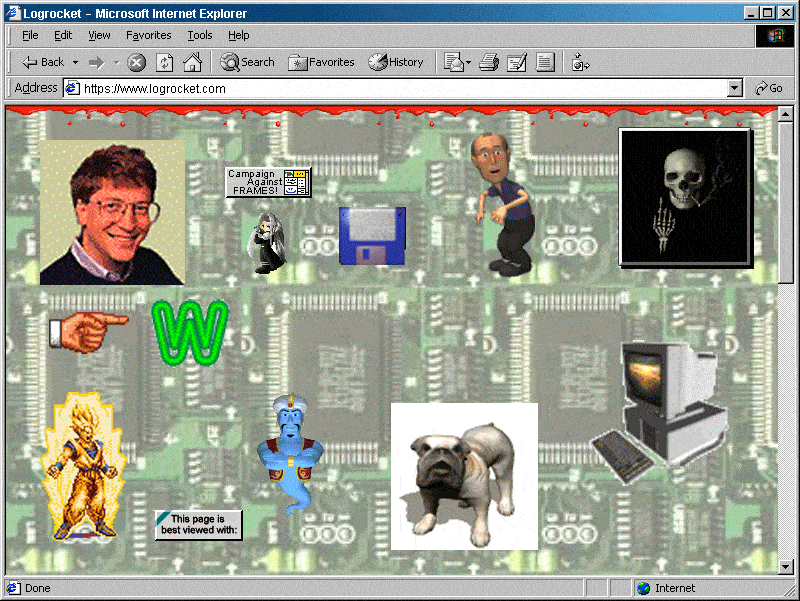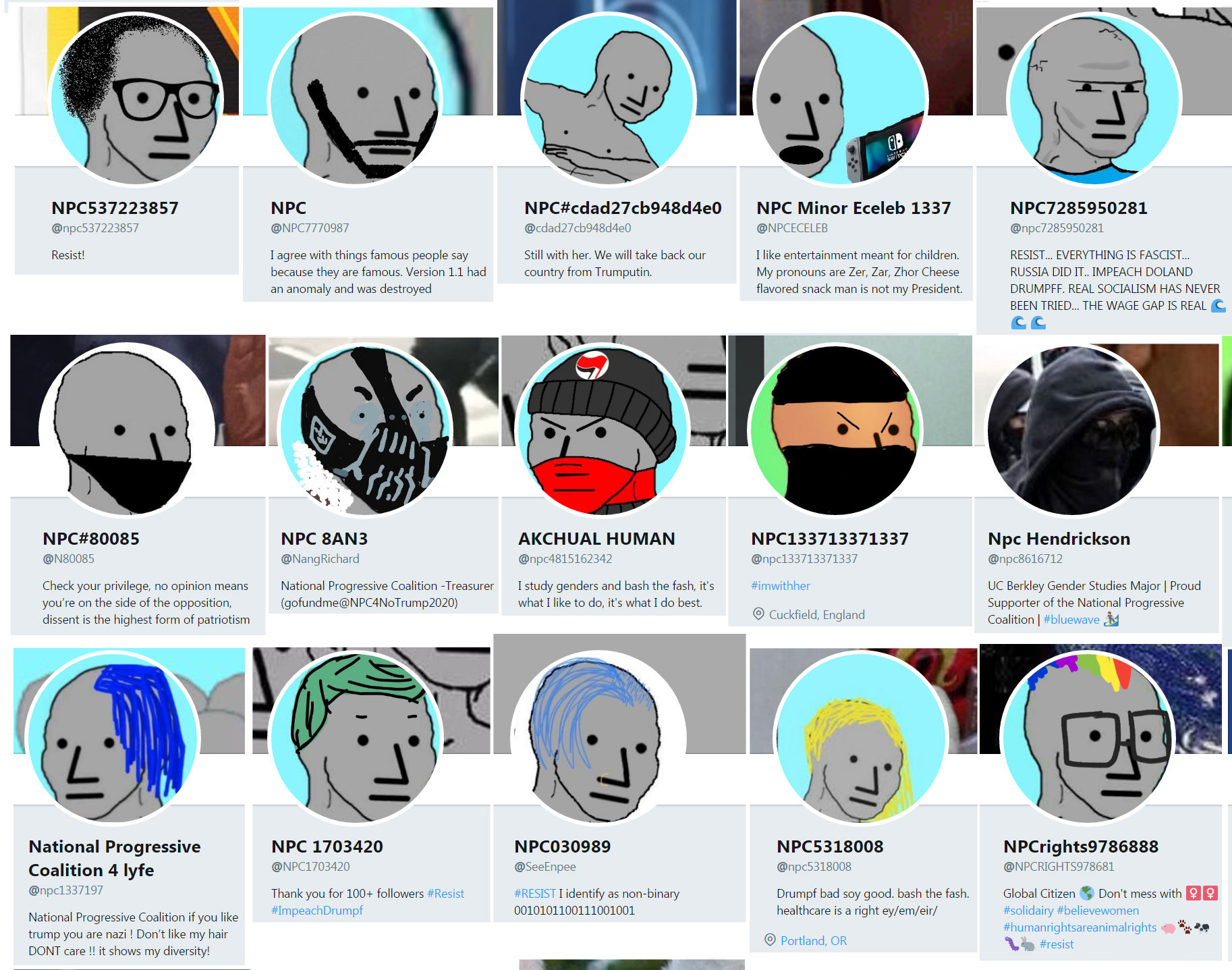In today’s digital landscape, where government-sized social media platforms dictate so much of our lives, it’s becoming ever so clear that having your own website is no longer just a luxury for the successful. Getting a personal website is the most important thing for your online presence.
The internet is currently owned by some 3 major megacorporations. Not that this is any secret; visit any of the major social media sites and you’ll notice a massive chunk of the content is just screenshots from the other sites. Aside from the annoyance it is, this system threatens individuals’ ownership and privacy. These mega-sites have complete ownership over everything you’re posting. You may pretend that you technically own everything. The copyright is still in your hands. The real owner, however, is the one who decides where it gets seen, whether it gets deleted, whether you get paid for it, etc. Social media platforms can, and have, deleted posts they simply don’t like. All these social media sites have vague rules that could, with some mild twisting, apply to anything.
Rejecting the modern web
The solution to this massive issue is simply disbanding these egregious ‘social’ media platforms.
There have been some steps in the right direction; for example, fediverse platforms like Mastadon decentralize their platform as to remove the totalitarian power held by the developers businessmen social engineers. Though these attempts are weak, and don’t tackle the issue at its core.

Everyone should have a personal website. This is how the internet should function. Your website doesn’t need to be complex nor beautiful to start off. We need to shake the idea that you must be important or traditionally successful to have a website in your name. A great way to get started is even just a webpage with a picture, an ‘about me’, and a list of links to your existing social media pages.
Then you can slowly start making a page or two dedicated to a portfolio, travel pictures, or maybe even some blog posts. The site will build itself organically, just as a social media profile does. This process can be made even easier with GUI editors like Squarespace or Wix, but I’d recommend just learning some basic HTML and CSS to write it yourself. It genuinely is much easier than you might think. Check out some awesome personal sites made by hobbyists.
RSS
I want to have a quick intermission before I talk about the benefits of a personal site to quickly talk about RSS feeds.
Typically the first interjection people have when talking about disbanding social media is a reluctance to leave the ‘social media feed’ we have all been accustomed to. Understandably it would be quite a pain to have to check each of your friends’ sites one by one when you want to check for any new content. Thankfully we have RSS feeds that solve that exact problem. It’s the grandfather of the modern social media feed in a sense, as it predates it quite a bit. Don’t ask me why nobody uses them anymore, as it would block many infringements on privacy. But I guess the ‘personal website’ predates social media as well.
Regardless, RSS is simply a way of fetching articles from a website without having to go to the website yourself. Most websites have an RSS link, here’s mine.
Then, you can use an RSS reader to fetch the latest articles from the RSS feed. The magical part is that an RSS reader can fetch from multiple sites, creating a feed for you, defined by you. Its like following someone on Instagram to see their posts on your feed but instead you just add their site to your reader. Even some social media sites have RSS built in, each youtube channel, each subreddit, twitter account, etc. So you could even continue to view content from those sites on your RSS feed.
RSS is amazing because it’s just a protocol. Everyone follows it and data seamlessly comes to you through the internet. It’s not owned by any megacorporations and cannot be manipulated.
Nobody needs social media anyway
No more content ransom
Having your content under your authorship and stored on your website keeps all the power in your hands. As I briefly touched on earlier, ¡the only reason companies like Facebook, Twitter, Google, etc. can get away with such vile violations of your privacy and exert such totalitarian control over users is because they own everything! This ransom of your content is what keeps the power in their hands.
Privacy
While web scrapers will always be peering into every dark corner of the web, having a personal site allows you to exercise much greater control over what is exposed to the internet. Not only can you far more effectively erase content from a personally authored site, but more importantly megacorps can’t spy on you. Sites like Instagram, Twitter, Youtube, etc. all store information on which links you’re clicking, what kind of content you subscribe to, and even how long you look at ads. Farming information from your subconscious without your permission. None of this is possible if you’re viewing someone’s personal website (unless the author chooses to embed such trackers onto their website, which would still be creepy but harder to maintain and enforce)
No regulation
This one is self explanatory. Who could regulate your website if you own it and post everything yourself? Even if your VPS provider decides it doesn’t like what you’re putting up, you can move your site somewhere else without any loss.
Ads
This is especially targeted toward sites like YouTube. Sites where you either get all ads or no ads. Which is really any site with ads as monetization. You can still run ads on your own site if you’d like. I am of the stubborn belief that ads are the devil of the 21st century and that there are far better ways to monetize work. In any case, the benefit here is that you don’t necessarily need to be ‘advertiser friendly’ in the way you have to be on YouTube to monetize. You just have to abide by the rules outlined by the ad provider you choose. Keyword: you
Personal Expression
cringe awesome personal site

On your own private website, you can change virtually everything. Your limit is within your ability to write HTML and CSS, and even then, there are GUI interfaces that simplify the process. How you are presented is entirely within your control and can change as a reflection of self.
How to get a website
¿Now, how does one go about getting a website? Nowadays, there are plenty of ways to create a website.
If you don’t know where to start I garuntee it is easier than you think. But it will take a little research. Megacorps have tried to make the internet seem difficult to make users feel that they need big social media sites to use it. This simply is not the case.
I’m going to briefly explain the components of a website. There are 3 things you need for a website to function
- Domain Name
- This is the URL or address of your site. You can buy or rent one from sites like godaddy, google domains, namecheap, and epik. They cost close to nothing and will only get more expensive and less available.
↑ buy one that resonates right now! ↑
- HTML+CSS
- This is the stuff that will show up on the user’s screen. HTML is the content like text, images, and videos, while CSS is the color scheme and layout of the page.
- Server
- A server is a computer that your URL points to. It will then serve the HTML to the user accessing your site. You can rent a small one for cheap at sites like hostinger, host gator, and vultr
There are services like squarespace or wix that will manage all three of these for you. These are okay, but they do come with some of the cons of social media.
If you choose to go down this road, I would heavily recommend you avoid the templates they offer and just write your own HTML. It may seem backward, but it will make building your site easier. Plus, you can learn hot to do it by watching just a few youtube videos.
The best thing you can do, if you have the time, is to just set up your own server manually and serve your own hand crafted HTML. I’ll say it again, it’s easier than you think, but it may require some troubleshooting. This is the way my site is currently up. I maintain everything myself. My domain is purchased from epik, my HTML+CSS is written by me (I use Hugo to help manage the content), and everything is hosted on a VPS server using vultr.
TLDR; Buy a domain you like as soon as possible and avoid templates. If you need to use a template choose one as that s as simple as possible.
For inspiration, check out wiby.me. It is a search engine that only displays sites with simple HTML and CSS.
Taking control
It’s now as evident as ever that these social media platforms not only threaten our privacy, but also limit our control over our own authorships and expression. It is by re-embracing the personal website that we can free the web.
Get a single page website up now and gradually add to it as you do a social media page. It will grow organically, and you will free yourself from the evils of a corporate web.